
Malabo: The Enchanting Capital of Equatorial Guinea
Welcome to Malabo, the captivating capital city of Equatorial Guinea. Situated on the northern coast of Bioko Island, Malabo is a unique blend of colonial charm and modern allure. As you wander through its streets, you'll find Spanish colonial architecture standing proudly alongside contemporary buildings, offering a glimpse into the city’s rich history and cultural tapestry. Malabo is a melting pot of cultures, where you can experience the vibrancy of African traditions mixed with Spanish influences. The city is home to several landmarks, including the beautiful Cathedral of Santa Isabel, with its striking neo-Gothic style, and the bustling Malabo Market, where you can immerse yourself in the local way of life and shop for traditional crafts and fresh produce. For nature lovers, Malabo offers lush landscapes and scenic views. Visit the Pico Basilé National Park to explore diverse flora and fauna or take a short trip to the nearby Ilachi Falls for a refreshing escape. The city’s coastal location also provides opportunities for water activities, from relaxing on pristine beaches to exploring the underwater world through snorkeling and diving. Food enthusiasts will delight in Malabo’s culinary scene, which features a range of delicious dishes inspired by both African and Spanish cuisines. Be sure to try local specialties such as fish stews, plantains, and cassava-based meals. The city’s lively nightlife, with its array of bars and clubs, will also ensure your evenings are filled with fun and excitement.
Local tips in Malabo
- Carry some cash, as not all places accept credit cards.
- Learn a few basic phrases in Spanish to help with communication.
- Dress modestly, especially when visiting religious sites.
- Tap water is not safe to drink; always opt for bottled water.
- Be cautious when taking photos, especially of government buildings.
- Hire a local guide to enhance your experience and learn more about the city’s history and culture.
Malabo: The Enchanting Capital of Equatorial Guinea
Welcome to Malabo, the captivating capital city of Equatorial Guinea. Situated on the northern coast of Bioko Island, Malabo is a unique blend of colonial charm and modern allure. As you wander through its streets, you'll find Spanish colonial architecture standing proudly alongside contemporary buildings, offering a glimpse into the city’s rich history and cultural tapestry. Malabo is a melting pot of cultures, where you can experience the vibrancy of African traditions mixed with Spanish influences. The city is home to several landmarks, including the beautiful Cathedral of Santa Isabel, with its striking neo-Gothic style, and the bustling Malabo Market, where you can immerse yourself in the local way of life and shop for traditional crafts and fresh produce. For nature lovers, Malabo offers lush landscapes and scenic views. Visit the Pico Basilé National Park to explore diverse flora and fauna or take a short trip to the nearby Ilachi Falls for a refreshing escape. The city’s coastal location also provides opportunities for water activities, from relaxing on pristine beaches to exploring the underwater world through snorkeling and diving. Food enthusiasts will delight in Malabo’s culinary scene, which features a range of delicious dishes inspired by both African and Spanish cuisines. Be sure to try local specialties such as fish stews, plantains, and cassava-based meals. The city’s lively nightlife, with its array of bars and clubs, will also ensure your evenings are filled with fun and excitement.
When is the best time to go to Malabo?
Iconic landmarks you can’t miss
ibis Malabo
Discover the hospitality of Equatorial Guinea at ibis Malabo, your home away from home on Isla de Bioko, blending comfort and local charm.

Hotel Anda China Malabo
Experience a blend of comfort and cultural immersion at Hotel Anda in Malabo, Equatorial Guinea's serene escape for travelers.

Malabo International Airport
Discover the essence of Equatorial Guinea at Malabo International Airport, a modern gateway to breathtaking landscapes and vibrant culture.
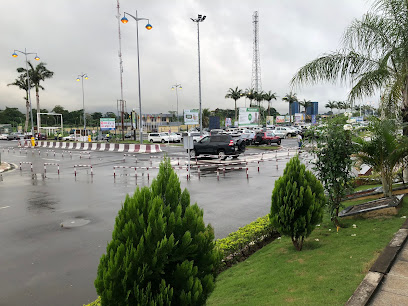
Parque Nacional de Malabo
Explore the breathtaking landscapes and diverse wildlife of Parque Nacional de Malabo, a natural wonder in Equatorial Guinea.
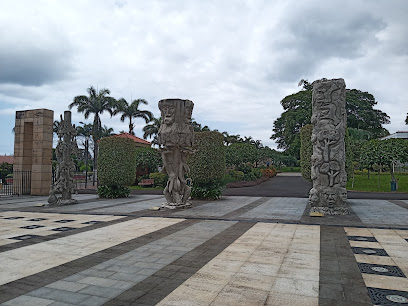
Magno Suites Exclusive Hotel & Restaurant
Experience luxury and comfort at Magno Suites Exclusive Hotel & Restaurant, a perfect retreat in the heart of Malabo, Equatorial Guinea.
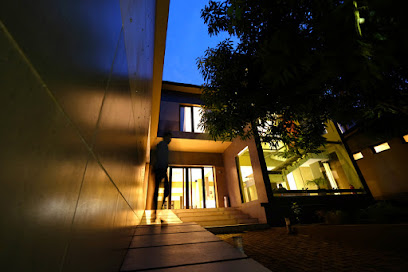
La Luna
Experience the finest dining in Malabo at La Luna, where local ingredients meet international cuisine for an unforgettable meal.
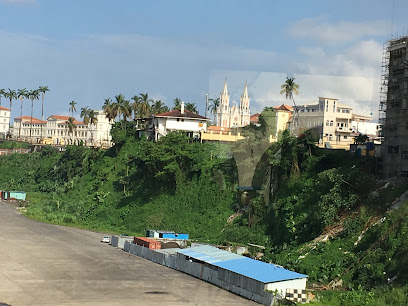
St. Elizabeth’s Cathedral
Discover the architectural beauty and spiritual serenity of St. Elizabeth's Cathedral in Malabo, Equatorial Guinea, a must-see landmark for every traveler.
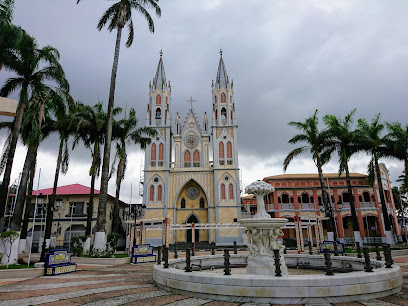
Rumbo Malabo
Discover the beauty and adventure of Equatorial Guinea with Rumbo Malabo, your top travel agency for unforgettable experiences and local expertise.
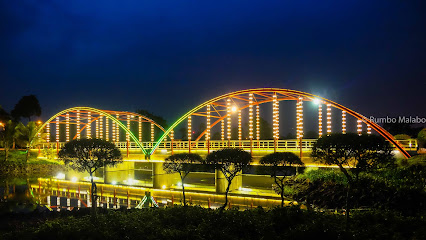
Malabo Stadium
Experience the vibrant sports culture of Equatorial Guinea at Malabo Stadium, where excitement meets community spirit in a stunning venue.
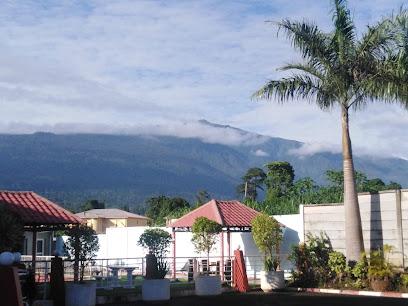
Bidji Binia
Experience the best of Italian cuisine at Bidji Binia in Malabo, where delicious pizzas and a warm atmosphere await every traveler.
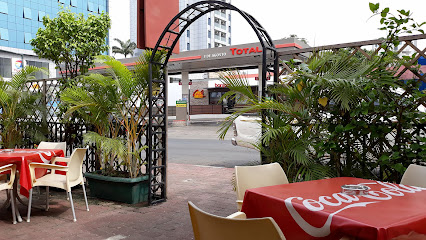
Aviator Pub and Café
Experience the vibrant fusion of American cuisine, live music, and a lively atmosphere at Aviator Pub and Café in Malabo, Equatorial Guinea.
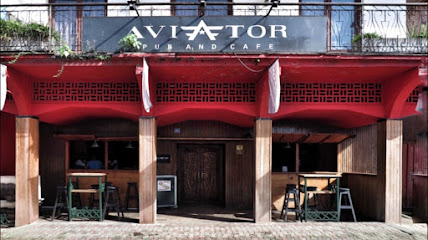
Café Malabo
Discover the vibrant flavors and warm ambiance of Café Malabo, a must-visit café and bar in the heart of Equatorial Guinea.
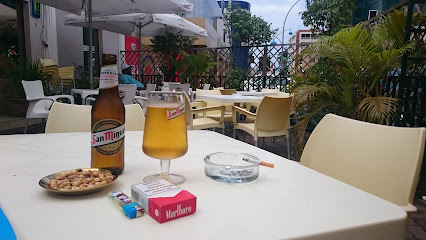
España Cultural
Discover the vibrant blend of Spanish culture and cuisine at España Cultural in Malabo, Equatorial Guinea, a must-visit destination for all travelers.
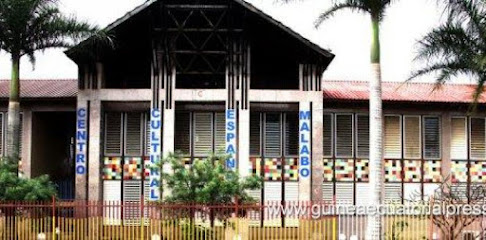
Hotel Impala
Discover the charm of Malabo while enjoying the comfort and convenience of Hotel Impala, your perfect travel base in Equatorial Guinea.

Pizzeria italiana
Savor the authentic taste of Italy at Pizzeria Italiana in Malabo, where delicious pizzas and a warm atmosphere await every visitor.
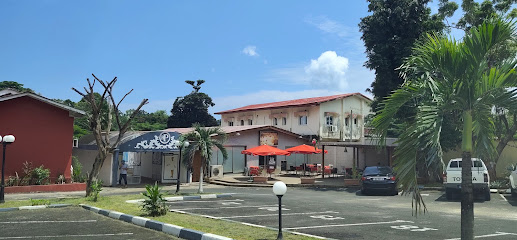
Unmissable attractions to see
Malabo Stadium
Explore Malabo Stadium, a modern sports venue showcasing the vibrant culture and passion for athletics in Equatorial Guinea.
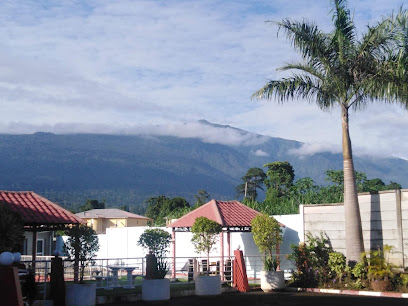
Reserva Científica de la Caldera de San Carlos
Experience the breathtaking beauty of Reserva Científica de la Caldera de San Carlos, a stunning national park rich in biodiversity and natural wonders.
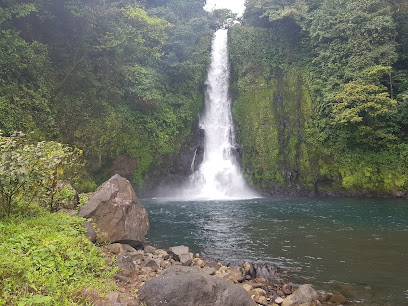
Playa de Arena Blanca
Explore the pristine beauty of Playa de Arena Blanca, a tropical paradise in Equatorial Guinea with soft sands and stunning ocean views.
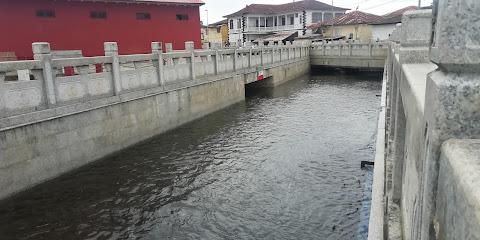
Pico Basilé
Explore the breathtaking heights of Pico Basilé in Equatorial Guinea, where stunning vistas and rich biodiversity await your discovery.

Pico Basilé National Park
Explore the breathtaking landscapes and unique wildlife of Pico Basile National Park, a gem in Equatorial Guinea's rich natural heritage.
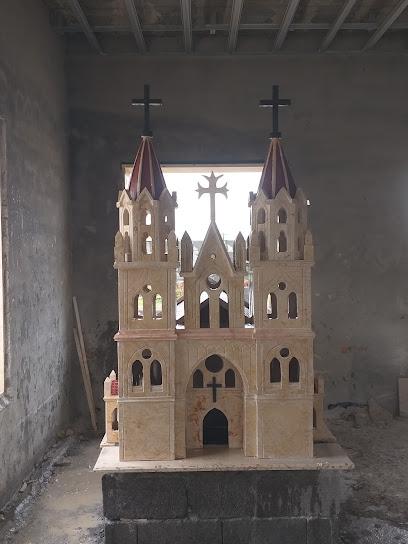
Essential places to dine
La Luna
Experience exquisite fine dining at La Luna in Malabo, where local flavors meet international cuisine in a stunning ambiance.
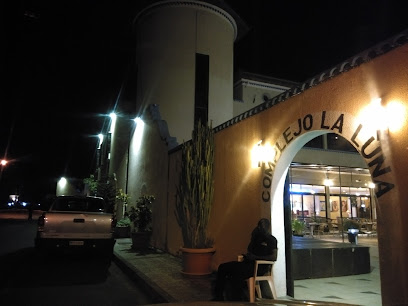
Bidji Binia
Experience the best pizza in Malabo at Bidji Binia—where local flavors meet authentic Italian recipes.
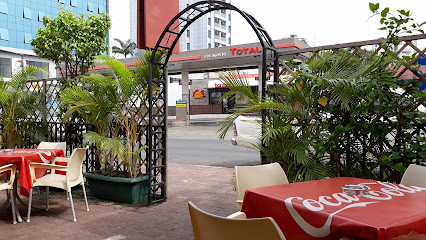
Aviator Pub and Café
Experience vibrant nightlife at Aviator Pub & Café in Malabo – where delicious American cuisine meets lively entertainment!
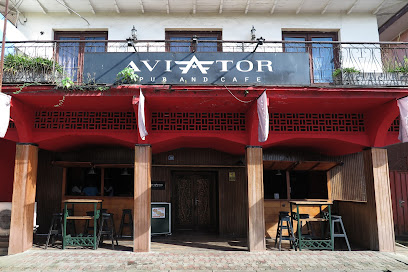
L'Atelier
Discover exquisite dining at L'Atelier in Malabo—where local flavors meet international flair in a vibrant atmosphere.
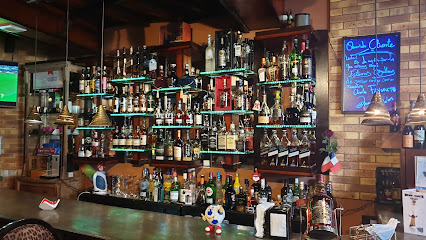
Pizza Place
Experience authentic Italian flavors at Pizza Place in Malabo – your perfect dining destination for delicious pizzas and great company.
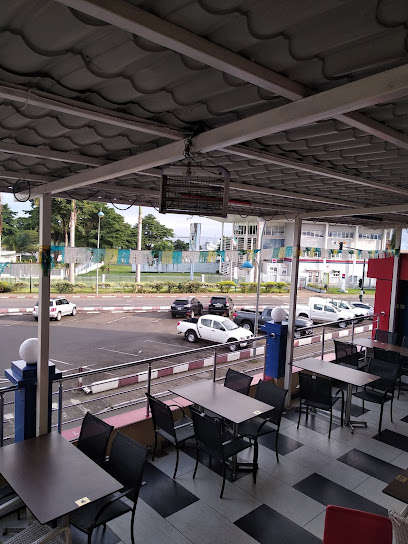
COMPLEJO EL CARIBE
Experience the vibrant flavors of Equatorial Guinea at Complejo El Caribe – where culinary tradition meets modern dining.
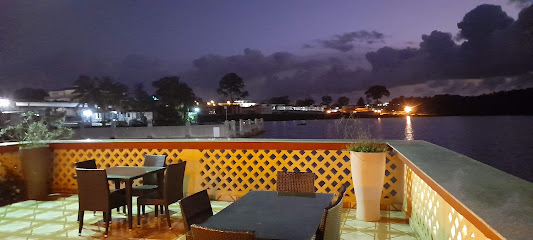
Restaurante Imagine
Experience the fusion of local flavors and international cuisine at Restaurante Imagine in Malabo.
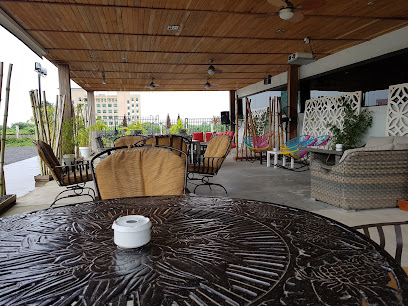
Delice de France
Experience authentic French cuisine at Delice de France in Malabo - where every meal is a culinary journey through France's finest flavors.
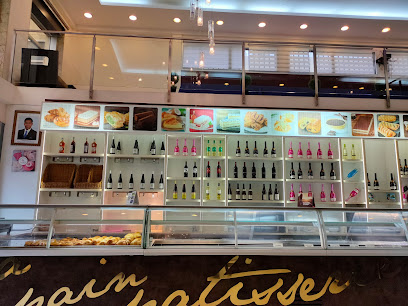
El Rancho Restaurant
Experience the vibrant flavors of Equatorial Guinea at El Rancho Restaurant in Malabo - a culinary gem surrounded by stunning natural beauty.
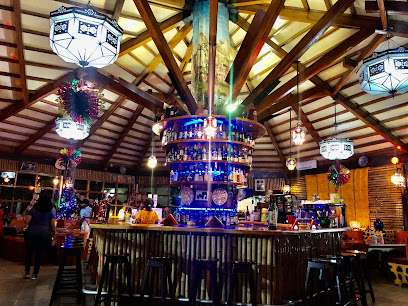
El Hard Rock Resto and Pub
Discover vibrant dining at El Hard Rock Resto and Pub in Malabo - where delicious cuisine meets lively entertainment in Equatorial Guinea.
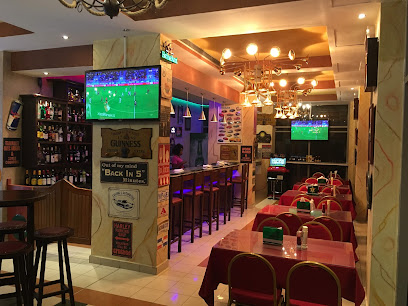
Olympus Skybar
Discover Olympus Skybar: An exquisite dining experience with stunning views over Malabo's skyline and vibrant nightlife.
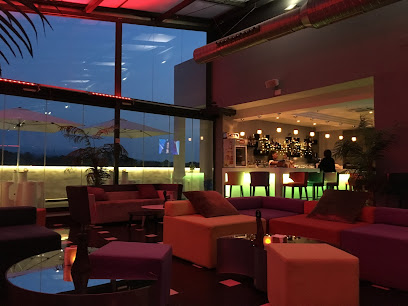
Restaurante Kalytero
Discover exquisite Mediterranean flavors at Restaurante Kalytero in Malabo – a must-visit for food lovers exploring Equatorial Guinea.
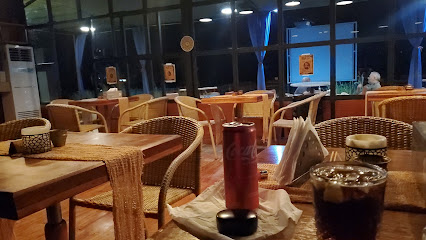
el paraiso
Experience authentic Equatorial Guinean cuisine at El Paraiso in Malabo - where every dish tells a story.
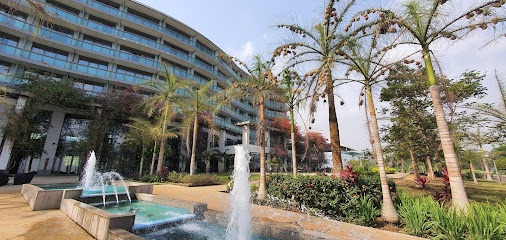
Restaurante L’Oriental
Experience authentic Equatorial Guinean cuisine at Restaurante L’Oriental in Malabo – where tradition meets flavor in every dish.
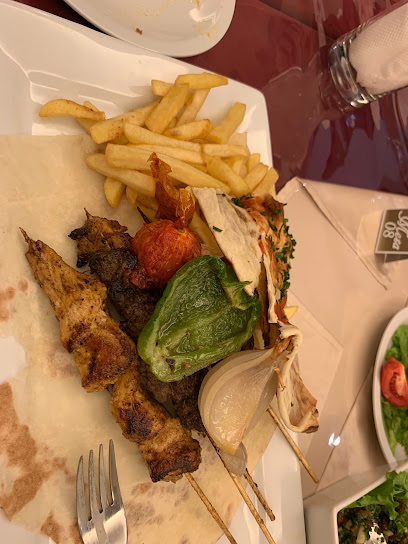
Lucy - Ethiopian Restaurant
Savor the rich flavors of Ethiopia at Lucy - an authentic restaurant in Malabo offering traditional dishes in a welcoming atmosphere.
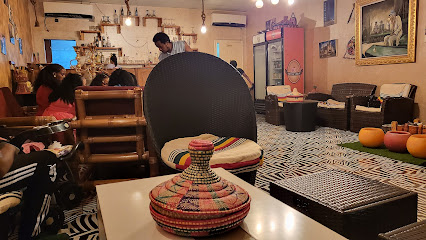
Markets, malls and hidden boutiques
Ventage Mall Malabo
Explore the essence of modern shopping and local culture at Ventage Mall Malabo, your premier destination in Equatorial Guinea.
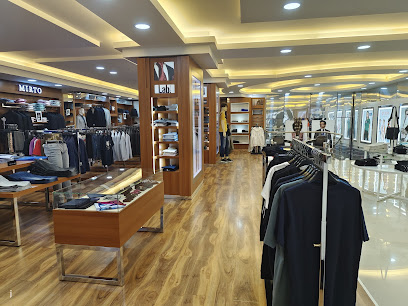
kim mall istanbul en malabo
Explore Kim Mall in Malabo for a delightful shopping experience featuring a blend of local and international fashion styles to elevate your wardrobe.
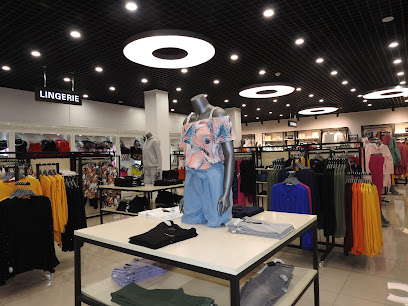
Solfage
Explore Solfage in Malabo for an inspiring shopping experience filled with local culture and unique finds.
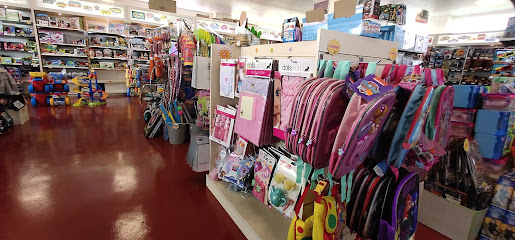
Guinaco
Discover the vibrant flavors of Equatorial Guinea at Guinaco grocery store in Malabo, where local ingredients meet a friendly shopping experience.
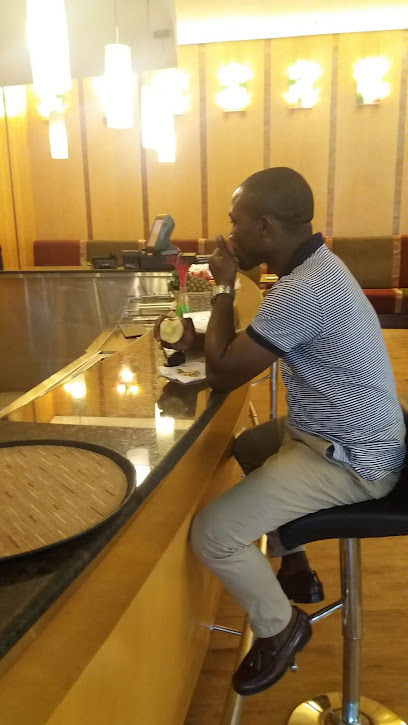
Tienda Nono
Explore Tienda Nono in Malabo for an unforgettable clothing shopping experience, blending local culture with contemporary fashion trends.

gavarishop
Experience the essence of Malabo shopping at Gavarishop, where clothing meets convenience in a vibrant environment.

Tamara
Experience the best of Malabo's sweet delights at Tamara, a charming dessert shop offering an array of delectable treats and warm hospitality.
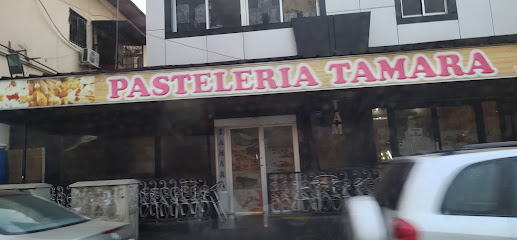
Dulces de Guinea
Discover Dulces de Guinea in Malabo, where exquisite cookies blend local flavors for an unforgettable treat.
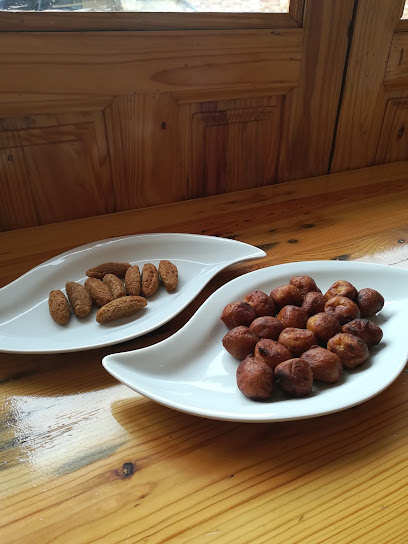
CERAMICO
Explore CERAMICO in Malabo for unique home goods that reflect the rich culture of Equatorial Guinea, perfect for gifts or personal treasures.
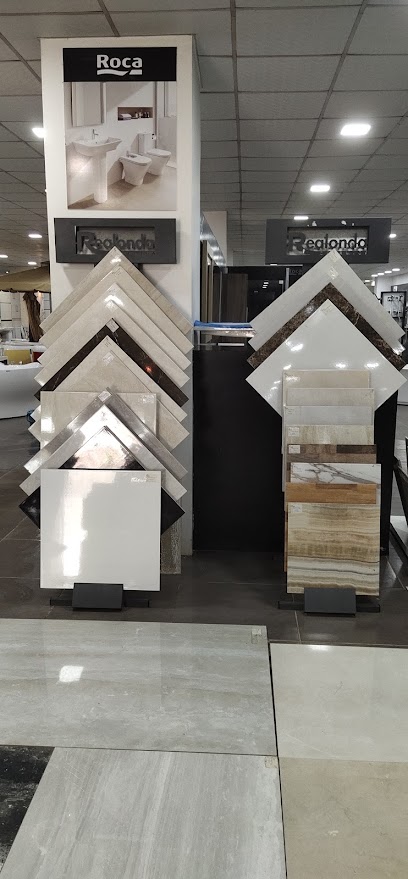
CADOSBE SHIP CHANDLER EQUATORIAL GUINEA S.L
Explore Malabo with ease at CADOSBE Ship Chandler, your go-to convenience store for local goods and essential supplies.

Sastreria La Juventud
Discover unique clothing and accessories at Sastreria La Juventud in Malabo, a local favorite showcasing the vibrant fashion of Equatorial Guinea.
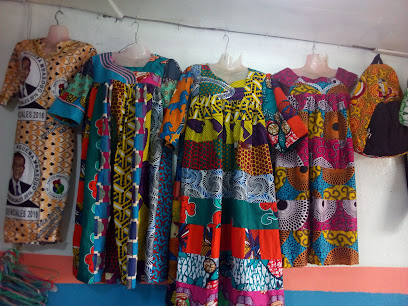
Mirinda
Explore the convenience of Mirinda in Malabo, Equatorial Guinea, your ideal stop for snacks, beverages, and local essentials during your travels.

Chez Miriam Malabo
Discover the vibrant spirit of Equatorial Guinea at Chez Miriam, where local crafts meet culinary delights in the heart of Malabo.
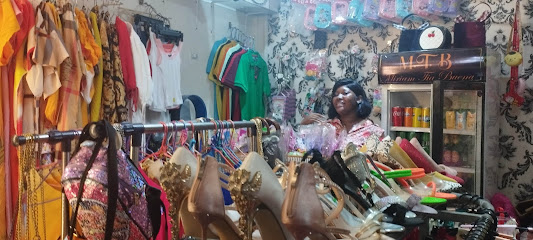
TIENDA LA ELEGANCIA CUENTA
Discover vibrant fashion at Tienda La Elegancia Cuenta in Malabo, Equatorial Guinea – a must-visit clothing store for every tourist!
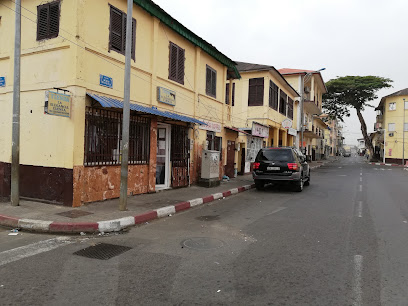
Tienda Elegance Malabo
Explore the vibrant world of fashion at Tienda Elegance Malabo, where local craftsmanship meets contemporary style in the heart of Equatorial Guinea.
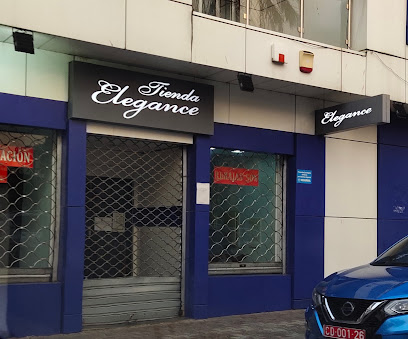
Essential bars & hidden hideouts
La Luna
Discover the art of fine dining at La Luna, where exquisite flavors and a captivating atmosphere create an unforgettable culinary experience in Malabo.
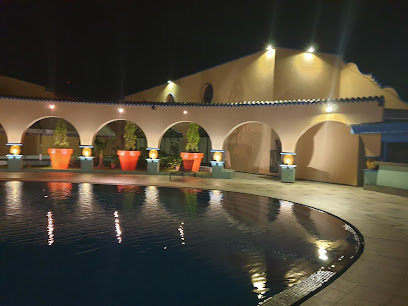
Aviator Pub and Café
Discover the vibrant flavors and lively atmosphere of Aviator Pub and Café, a premier destination for American cuisine and local entertainment in Malabo.
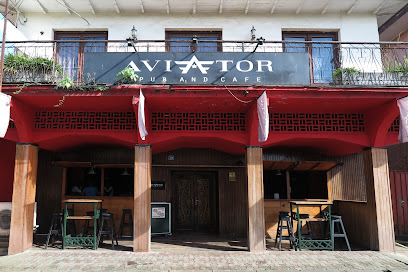
L'Atelier
Discover the culinary delights of L'Atelier in Malabo, where local ingredients meet international cuisine in a warm and inviting atmosphere.
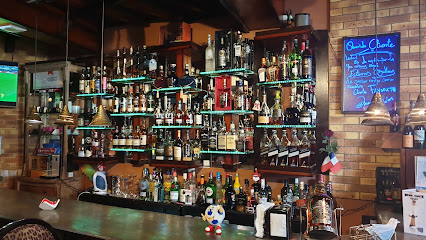
Café Malabo
Discover the vibrant atmosphere of Café Malabo, a perfect blend of local flavors and international cuisine in the heart of Equatorial Guinea.
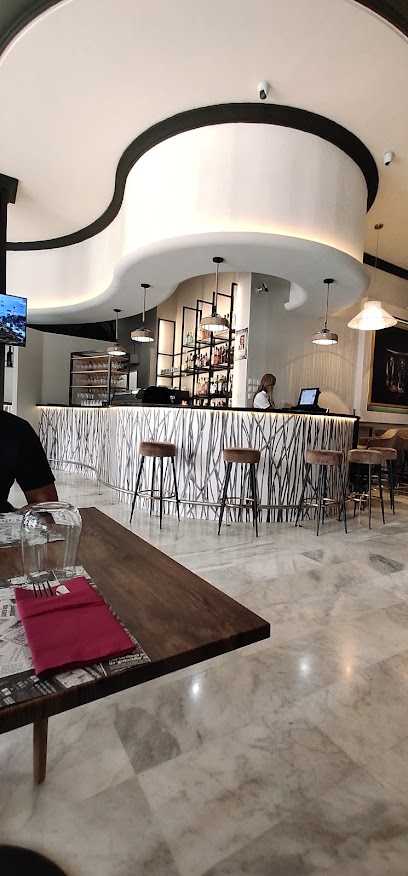
El Hard Rock Resto and Pub
Discover the vibrant El Hard Rock Resto and Pub in Malabo, where delicious cuisine meets lively entertainment in a welcoming atmosphere.
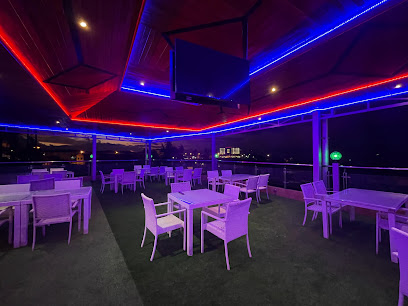
Olympus Skybar
Experience the vibrant nightlife and stunning views at Olympus Skybar in Malabo, Equatorial Guinea's premier rooftop restaurant.
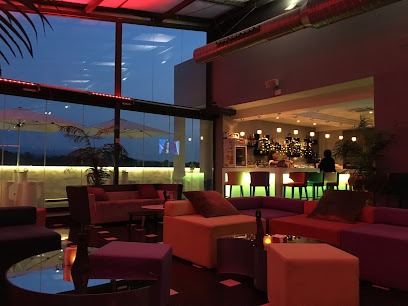
Restaurante Kalytero
Experience the essence of Mediterranean dining at Restaurante Kalytero in Malabo, where fresh flavors meet stunning ocean views.
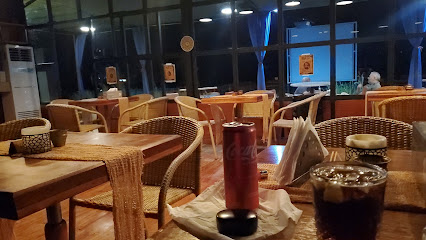
SAKOGE SL
Discover the vibrant energy and local flavors at SAKOGE SL, a must-visit bar in Malabo, Equatorial Guinea.
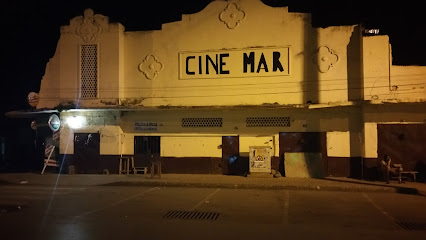
Candy Vista Puerto
Discover Candy Vista Puerto, Malabo's premier gastropub combining local flavors with a vibrant atmosphere for an unforgettable dining experience.
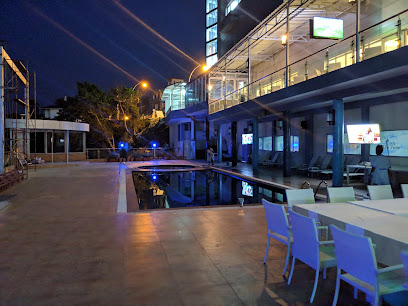
IMANI LOUNGE MALABO
Discover the vibrant nightlife and exquisite cuisine at Imani Lounge Malabo in Equatorial Guinea's charming capital.
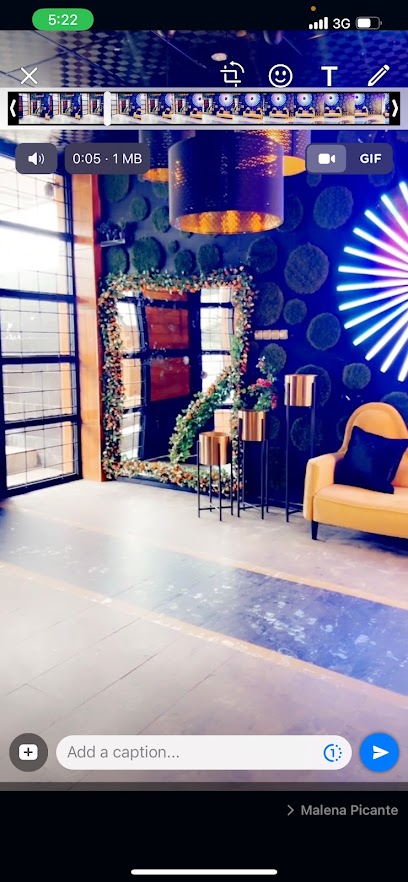
Bar Baney
Experience the vibrant culture and relaxation at Bar Baney, a unique bar and educational center in the heart of Malabo, Equatorial Guinea.
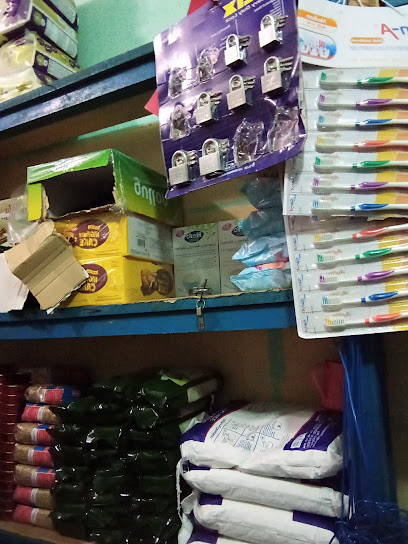
Bar Restaurante Entre Amigos
Experience the best of grilled cuisine and local flavors at Bar Restaurante Entre Amigos in the heart of Malabo.
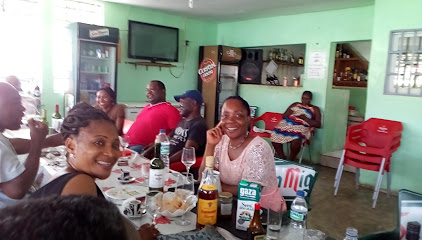
Cafe Kristania
Discover the flavors of Equatorial Guinea at Café Kristania, a culinary haven in Malabo offering local and international cuisine in a welcoming atmosphere.
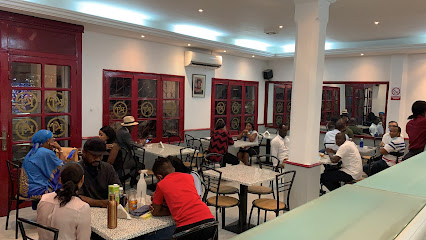
Garden Lounge
Experience the tranquil ambiance and delightful drinks at Garden Lounge in Malabo, Equatorial Guinea - a perfect spot for relaxation and local flavor.
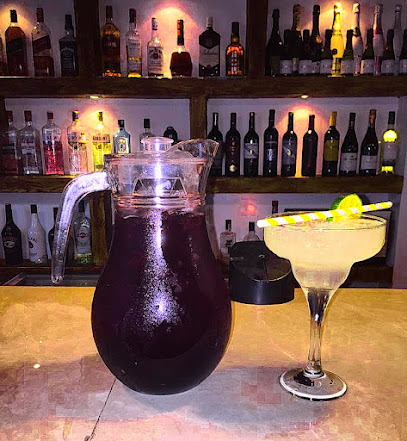
Bar Terraza Mamá Cata
Experience the vibrant flavors of Equatorial Guinea at Bar Terraza Mamá Cata, a culinary delight in Malabo's heart.

Local Phrases
-
- HelloHola
[o-la] - GoodbyeAdios
[a-dyos] - YesSi
[see] - NoNo
[no] - Please/You're welcomePor favor
[por fa-vor] - Thank youGracias
[gra-thyas] - Excuse me/SorryPerdón
[per-don] - How are you?¿Cómo estás?
[ko-mo es-tas] - Fine. And you?Bien. ¿Y tú?
[byen. ee too] - Do you speak English?¿Hablas inglés?
[a-blas in-gles] - I don't understandNo entiendo
[no en-tyen-do]
- HelloHola
-
- I'd like to see the menu, pleaseMe gustaría ver el menú, por favor
[me gus-ta-ree-a ver el me-nu, por fa-vor] - I don't eat meatNo como carne
[no ko-mo kar-ne] - Cheers!¡Salud!
[sa-lud] - I would like to pay, pleaseMe gustaría pagar, por favor
[me gus-ta-ree-a pa-gar, por fa-vor]
- I'd like to see the menu, pleaseMe gustaría ver el menú, por favor
-
- Help!¡Ayuda!
[a-yu-da] - Go away!¡Vete!
[ve-te] - Call the Police!¡Llama a la Policía!
[ya-ma a la po-li-thya] - Call a doctor!¡Llama a un médico!
[ya-ma a un me-di-ko] - I'm lostEstoy perdido
[es-toy per-di-do] - I'm illEstoy enfermo
[es-toy en-fer-mo]
- Help!¡Ayuda!
-
- I'd like to buy...Me gustaría comprar...
[me gus-ta-ree-a kom-prar] - I'm just lookingSolo estoy mirando
[so-lo es-toy mi-ran-do] - How much is it?¿Cuánto cuesta?
[kwan-to kwes-ta] - That's too expensiveEs demasiado caro
[es de-ma-sya-do ka-ro] - Can you lower the price?¿Puedes bajar el precio?
[pwe-des ba-har el pre-syo]
- I'd like to buy...Me gustaría comprar...
-
- What time is it?¿Qué hora es?
[ke o-ra es] - It's one o'clockEs la una
[es la u-na] - Half past (10)Las diez y media
[las dyeth ee me-dya] - MorningMañana
[ma-nya-na] - AfternoonTarde
[tar-de] - EveningNoche
[no-che] - YesterdayAyer
[a-yer] - TodayHoy
[oy] - TomorrowMañana
[ma-nya-na] - 1Uno
[oo-no] - 2Dos
[dos] - 3Tres
[tres] - 4Cuatro
[kwa-tro] - 5Cinco
[sinko] - 6Seis
[says] - 7Siete
[syet-te] - 8Ocho
[o-cho] - 9Nueve
[nwe-ve] - 10Diez
[dyeth]
- What time is it?¿Qué hora es?
-
- Where's a/the...?¿Dónde está...?
[don-de es-ta] - What's the address?¿Cuál es la dirección?
[kwal es la di-rek-thyon] - Can you show me (on the map)?¿Puedes mostrarme (en el mapa)?
[pwe-des mos-trar-me (en el ma-pa)] - When's the next (bus)?¿Cuándo es el próximo (autobús)?
[kwan-do es el pro-ksi-mo (au-to-bus)] - A ticket (to ....)Un boleto (a ....)
[oon bo-le-to (a)]
- Where's a/the...?¿Dónde está...?
History of Malabo
-
Malabo, originally named Santa Isabel, was founded by the British in 1827. The city was established as a base to combat the transatlantic slave trade. In 1844, it was ceded to Spain, and it became the capital of the Spanish colony of Fernando Poo, later known as Bioko. The city served as an administrative and commercial center for the Spanish, who left a lasting architectural and cultural influence.
-
In 1973, as part of a broader movement to Africanize place names in post-independence Equatorial Guinea, the city was renamed Malabo, after Malabo Lopelo Melaka, a local king who resisted Spanish colonization. This renaming was part of President Francisco Macías Nguema's policy to assert national identity and break from colonial past.
-
Equatorial Guinea gained independence from Spain on October 12, 1968, with Malabo becoming the capital of the new nation. The early years of independence were tumultuous, marked by the authoritarian rule of Francisco Macías Nguema, whose regime was characterized by human rights abuses and economic decline. In 1979, Macías was overthrown by his nephew, Teodoro Obiang Nguema Mbasogo, who has been in power since.
-
In the late 20th and early 21st centuries, Malabo experienced significant economic transformation due to the discovery of large offshore oil reserves. This oil boom attracted international businesses and transformed the city’s infrastructure, leading to rapid urbanization and modernization. The influx of wealth has led to the development of new buildings, roads, and improved public services.
-
Malabo boasts numerous cultural landmarks that reflect its historical tapestry. Key sites include the Malabo Cathedral, a neo-Gothic structure built in 1916, and the Malabo Government Palace, an example of colonial architecture. The city also hosts the Centro Cultural de España en Malabo, which promotes cultural activities and exchanges between Equatorial Guinea and Spain.
-
Malabo is a melting pot of ethnic groups, including the Bubi, Fang, and Fernandino communities. Each group contributes to the city’s rich cultural mosaic through traditional music, dance, cuisine, and festivals. For example, the Bubi people celebrate the Abira festival, a rite of purification and renewal, while the Fang people are known for their vibrant storytelling and Eboka dances.
Malabo Essentials
-
Malabo is accessible primarily via Malabo International Airport (SSG), which is the main entry point for international travelers. Several airlines offer flights to Malabo from major cities in Africa and Europe, including Ethiopian Airlines, Lufthansa, and Air France. Upon arrival, taxis and car rental services are available at the airport for transportation to the city center.
-
Within Malabo, taxis are the most common form of transportation and are relatively inexpensive. Make sure to negotiate the fare before starting your journey, as taxis do not use meters. Public buses are available but can be crowded and less reliable. For a more flexible option, consider renting a car; however, be aware that traffic can be chaotic, and road conditions may not always be ideal.
-
The official currency in Equatorial Guinea is the Central African CFA franc (XAF). Credit cards are accepted in some hotels, restaurants, and shops in Malabo, but it is advisable to carry cash for smaller establishments and markets. ATMs are available in the city, but it is best to have enough cash on hand to avoid any inconvenience.
-
Malabo is generally safe for tourists, but it is important to exercise caution. Avoid walking alone at night, especially in less populated areas. The neighborhoods of New Malabo and Campo Yaoundé have higher crime rates, so be extra vigilant in these areas. Keep your belongings secure and be aware of your surroundings at all times.
-
In case of an emergency, dial 112 for police assistance, 114 for medical emergencies, and 115 for fire services. The main hospital in Malabo is the Hospital General de Malabo, which provides emergency medical care. It is recommended to have travel insurance that covers medical emergencies. Pharmacies are also available in the city for minor health issues.
-
Fashion: Do dress modestly, especially in public and religious sites. Avoid wearing revealing clothing. Religion: Do respect local customs and traditions, and be mindful of religious practices. Public Transport: Do be respectful to fellow passengers and give up your seat to the elderly. Don't eat or drink on public transport. Greetings: Do greet people with a handshake and a smile. Address people with titles and formalities as a sign of respect. Eating & Drinking: Do try local dishes and accept food offerings graciously. Don't refuse hospitality, as it is considered impolite.
-
To experience Malabo like a local, visit the lively Central Market where you can buy fresh produce and traditional goods. Engage with locals who are often friendly and willing to share stories about the city's culture and history. Don't miss visiting the Malabo National Park for a relaxing stroll, and explore the colonial architecture in the old town. Additionally, try local dishes such as 'sopa de pescado' (fish soup) and 'malamba' (a traditional drink made from sugarcane).
Trending Landmark in Malabo
Nearby Cities to Malabo
-
Things To Do in Luba
-
Things To Do in Limbe
-
Things To Do in Buea
-
Things To Do in Tiko
-
Things To Do in Douala
-
Things To Do in Calabar
-
Things To Do in Edea
-
Things To Do in Kribi
-
Things To Do in Uyo
-
Things To Do in Nkongsamba
-
Things To Do in Mamfe
-
Things To Do in Port Harcourt
-
Things To Do in Dschang
-
Things To Do in Mbini
-
Things To Do in Mbouda









